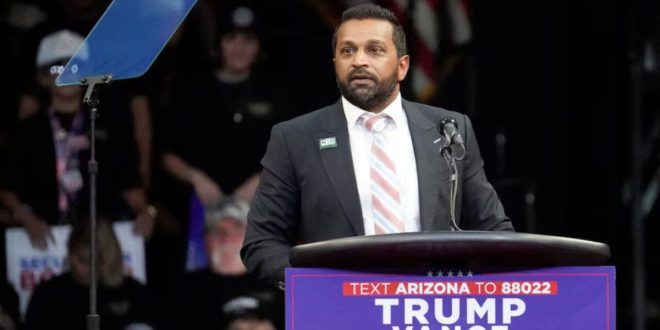KABUL – In a decisive move, President-elect Donald J. Trump has named Kash Patel, a former Pentagon chief of staff and an outspoken critic of the Taliban, as his nominee for director of the Federal Bureau of Investigation. Patel, widely recognized for his sharp denunciation of the Biden administration’s withdrawal from Afghanistan, has consistently warned of the Taliban’s resurgence and the associated risks of al Qaeda’s revival.
Patel, 43, has a robust background in national security and defense, having played a pivotal role in crafting the Trump administration’s conditions-based withdrawal strategy for Afghanistan. In a 2021 op-ed, Patel described the plan as a methodical approach to safeguard U.S. interests while ending the war. He has since criticized President Biden’s handling of the withdrawal, which he argues triggered the chaotic collapse of Afghanistan’s government and the Taliban’s return to power.
In a 2022 interview, Patel warned that the Taliban’s control over Afghanistan could pave the way for al Qaeda’s resurgence. He expressed concern that growing instability might necessitate a U.S. redeployment to the region within 18 months. His nomination signals Trump’s intent to adopt a tougher stance on national security, particularly regarding Afghanistan.
Trump’s selection of Patel is part of a broader reshaping of his national security team, indicating a likely pivot in U.S. foreign policy. Alongside Patel, Trump is reportedly assembling a cabinet of officials who share his critical view of the Taliban and the Biden administration’s handling of the region. These appointments suggest a renewed focus on addressing the fallout from the Taliban’s rise to power and recalibrating America’s approach to Afghanistan.
The Taliban, whose officials have cited the 2020 Doha Agreement as the foundation of U.S.-Taliban relations, have expressed a desire to maintain engagement with Washington. However, a second Trump administration could upend these dynamics, with analysts predicting a significantly tougher U.S. stance.
This development also reverberates across the international stage, with regional powers like China, Iran, and Russia closely monitoring Trump’s moves. Recent high-level meetings between these nations and Taliban leaders underscore growing concerns about shifts in U.S. policy under Trump’s leadership.
Trump’s rhetoric and key appointments hint at a sharp recalibration of America’s engagement with Afghanistan, raising questions about the future of U.S.-Taliban relations and the broader geopolitical landscape.
 Afghanistan Times
Afghanistan Times




